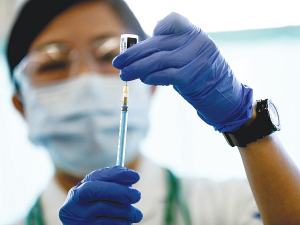M.I.A.
OPINION: The previous government spent too much during the Covid-19 pandemic, despite warnings from officials, according to a briefing released by the Treasury.
 A new study from the University of Otago shows a visible urban/rural divide in Covid-19 vaccination rates.
A new study from the University of Otago shows a visible urban/rural divide in Covid-19 vaccination rates.
According to a new study from the University of Otago, there was a visible rural/urban divide in Covid-19 vaccination rates.
The study, Rural-urban variation in COVID-19 vaccination uptake in Aotearoa New Zealand: Examining the national roll-out, sought to analyse vaccination uptake in rural versus urban settings during the peak period of New Zealand’s national vaccination roll-out in 2021.
The research found varying levels of vaccine uptake among different population groups. The study, published in Epidemiology and Infection, used a national dataset of 4.3 million health service users.
According to the study, at the national level, overall vaccination uptake in rural areas lagged most urban areas, with rural areas lagging behind their urban counterparts by 5-11% by December 2021.
However, the research found this gap is not as clear when also looking at vaccination rates in terms of ethnicity, age, and/or region.
While vaccination uptake among older people in rural areas largely reflected urban uptake, vaccination rates among younger people in rural areas tended to be lower than those of younger people in urban areas.
Talis Liepins, the lead author of the study and a PhD candidate in the University of Otago’s Department of General Practice and Rural Health, says the findings suggest opportunities for improvements in vaccination delivery models for rural and urban communities and further highlights the urban-rural divide in relation to equitable healthcare.
“It is important we advance general awareness around equity of access for rural populations and how health interactions for rural communities differ from urban communities,” says Liepins.
The researchers also found “considerable variance” in uptake between rural older and rural younger people; with the rural urban differences much more apparent in those aged less than 45 years.
Co-author, Professor Garry Nixon, head of rural section in the department of general practice and rural health, says that these differences, which were visible across population groups, suggest possible different barriers to access.
Funded by the Ministry of Health COVID-19 and National Immunisation Programme, the study is the first of three exploring the COVID- 19 vaccine rollout in rural Aotearoa New Zealand.
Budou are being picked now in Bridge Pā, the most intense and exciting time of the year for the Greencollar team – and the harvest of the finest eating grapes is weeks earlier than expected.
The Real Estate Institute of New Zealand (REINZ) has released its latest rural property report, providing a detailed view of New Zealand’s rural real estate market for the 12 months ending December 2025.
Rural retailer Farmlands has released it's latest round of half-year results, labeling it as evidence that its five-year strategy is delivering on financial performance and better value for members.
OPINION: "We are back to where we were a year ago," according to a leading banking analyst in the UK, referring to US president Donald Trump's latest imposition of a global 10% tariff on all exports into the US.
DairyNZ says the Government’s proposed Resource Management Act reform needs further work to ensure it delivers on its intent.
Overseas Trade Minister Todd McClay says he's working constructively with the Labour Party in the hope they will endorse the free trade agreement (FTA) with India when the agreement comes before Parliament for ratification.

OPINION: A mate of yours truly reckons rural Manawatu families are the latest to suffer under what he calls the…
OPINION: If old Winston Peters thinks building trade relations with new nations, such as India, isn't a necessary investment in…